When does partnership end and dependence begin?
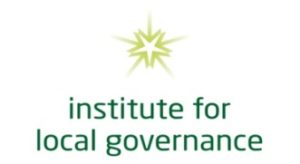 A seminar organised by the Institute for Local Governance. It will take place at Teesside University, Vicarage Road, Darlington DL1 1DR on 23rd June 2017, 9.30 – 1.00
A seminar organised by the Institute for Local Governance. It will take place at Teesside University, Vicarage Road, Darlington DL1 1DR on 23rd June 2017, 9.30 – 1.00
The political language surrounding partnership working is appealing. Originating from many initiatives established in New Labour governments, partnership became a catch-all phrase to encourage ‘joined-up working’, determining ‘what works’, and producing ‘added value’. When there’s plenty of money on the table, partnership working is easier because notions of shared responsibility don’t necessarily include expectations of sharing out resources. But when money is very tight, things change.
Austerity measures have weakened the provision of services to some of society’s most vulnerable people; such as people who are homeless, people with severe mental health problems and people suffering from alcohol or drug addiction. All too often such factors are inter-linked – which makes the situation more complex because lines of responsibility become blurred.
If agencies are obliged to water down or withdraw support for essential services, those partners which feel a strong sense of duty to maintain provision often try to fill the gap. Quite often such responsibilities fall to the emergency services – but with what consequences for their officers and for those other areas of responsibility for which they have a statutory duty to attend. How are key services, including the Police, Fire and Rescue, Ambulance, Health and Local Government responding to the challenges?
In policy terms, the Government has intervened through a series of legislative devices including the Policing and Crime Act 2017 which enables Police & Crime Commissioners, if there is local support, to oversee the local Fire and Rescue Authority. Similarly, the development of Combined Authorities could empower “Metro-Mayors” to play a significant role in governance of emergency services.
These developments, taken together with increasing budgetary pressures on all three emergency services, are producing new levels of complexity in the delivery of emergency services and various initiatives to secure enhanced collaboration. The big question for the seminar is not just to ask how service providers in the public, local government and voluntary sectors can continue to tackle front line issues, but also to look at how to alleviate problems before they become too severe or prevent problems in the first place.
The seminar’s starting point is not crisis management, but it is a chance to explore what needs to be done and can be done to prevent situations arising and to ensure that those in need are channelled to agencies that have the expertise to meet their complex needs. How can collaboration across service area boundaries help maximise the use of resources and enhance efficiency and effectiveness of service delivery?
Speakers include:
- Professor Howard Davis, Professor of Social & Local Policy, Faculty of Health & Life Sciences, Coventry University
- Chief Superintendent Jane Spraggon, Head of Command, Strategic Demand Management & Harm Reduction Command, Durham Police
- Jim Cunningham, The Community Peer Mentor – Project Coordinator, Office of the Durham Police Crime and Victims Commissioner, Durham Police
- Chris Lowther, Chief Fire Officer, Tyne and Wear Fire and Rescue Services
- Professor Eileen Kaner, Professor of Public Health and Primary Care Research, Newcastle University
- Kelly Stockdale, School of Health, Teesside University
This is the fourth seminar in the current season which covers a variety of topics including: welfare reform, revitalising coastal communities; graduate retention and recruitment; and, tackling the democratic deficit in the context of devolved responsibility. The seminar is free to attend, but places are limited and they tend to book up quickly, so please register your attendance via: Janet Atkinson, Institute for Local Governance, Durham University janet.atkinson@durham.ac.uk.
The Institute for Local Governance is a North East Research and Knowledge Exchange Partnership established in 2009 comprising the North East region’s Universities, Local Authorities, Police and Fire and Rescue Services. Further information about the content of the event can be obtained by contacting:- tony.chapman@durham.ac.uk or john.mawson@durham.ac.uk

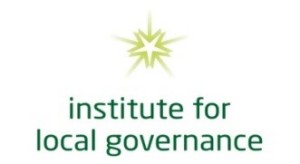 s is right for graduates as well as for the region. The seminar will also focus on the quality of graduate employment in the region by identifying the extent of ‘under-employment’ of graduates and debating it’s consequences for the incumbents of such jobs and for the region more generally.
s is right for graduates as well as for the region. The seminar will also focus on the quality of graduate employment in the region by identifying the extent of ‘under-employment’ of graduates and debating it’s consequences for the incumbents of such jobs and for the region more generally.
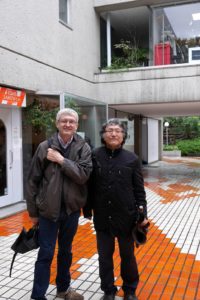

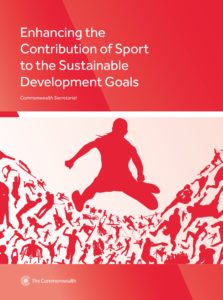 Two teams of experts and personalities drawn from across the Commonwealth will provide a reflective and entertaining debate on the motion: ‘Corruption in elite sport undermines the potential to promote development and peace through community sports’.
Two teams of experts and personalities drawn from across the Commonwealth will provide a reflective and entertaining debate on the motion: ‘Corruption in elite sport undermines the potential to promote development and peace through community sports’.
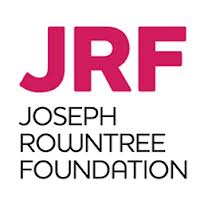


 St Chad’s College Professorial Fellow, Fred Robinson and Research Fellow, Ian Zass-Ogilvie have been working closely with Citizens House, a community group in Consett, helping them to develop and expand their community centre. Now, three years of hard work have at last paid off: the Big Lottery has pledged over £650,000 to build a new centre.
St Chad’s College Professorial Fellow, Fred Robinson and Research Fellow, Ian Zass-Ogilvie have been working closely with Citizens House, a community group in Consett, helping them to develop and expand their community centre. Now, three years of hard work have at last paid off: the Big Lottery has pledged over £650,000 to build a new centre.